Feuds with Kurt Cobain, Stevie Nicks on drugs: RIP MTV News
Not a lot of news anchors would be suspected of helping to trash a pair of hotel rooms and still keep their jobs.
But such was the case when Kurt Loder, then the face of recently shut-down MTV News, aimed to settle a feud with Kurt Cobain in 1992.
It grew out of the the grunge star souring on Loder after he publicized a Vanity Fair article about Courtney Love doing drugs while pregnant.
Cobain and wife Love hated the article and suddenly hated Loder as well.
When the Nirvana frontman expressed an interest in making amends, Loder hopped a jet to Minneapolis and met the rocker mid-tour.
He interviewed Cobain and things seemed to be smoothed out.
Afterward, Loder repaired with Nirvana’s bassist Krist Novoselic to his room for a drink.
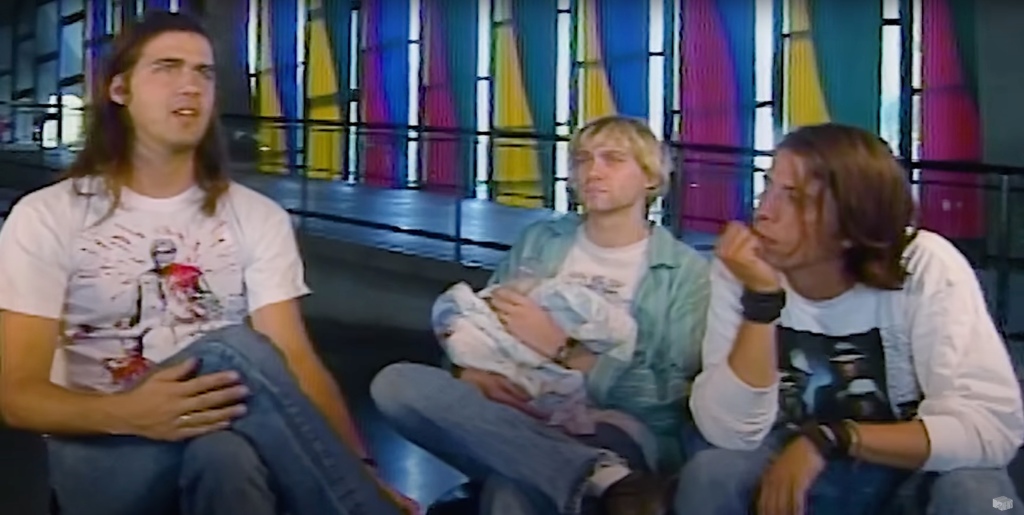
MTV executive Amy Finnerty went to check on them.
She found Noveselic’s room empty and, according to “I Want My MTV,” “completely destroyed.
“I mean broken glass tables, broken televisions, a full wet-bar with every glass broken,” the book reveals.
Loder’s room was junked as well.
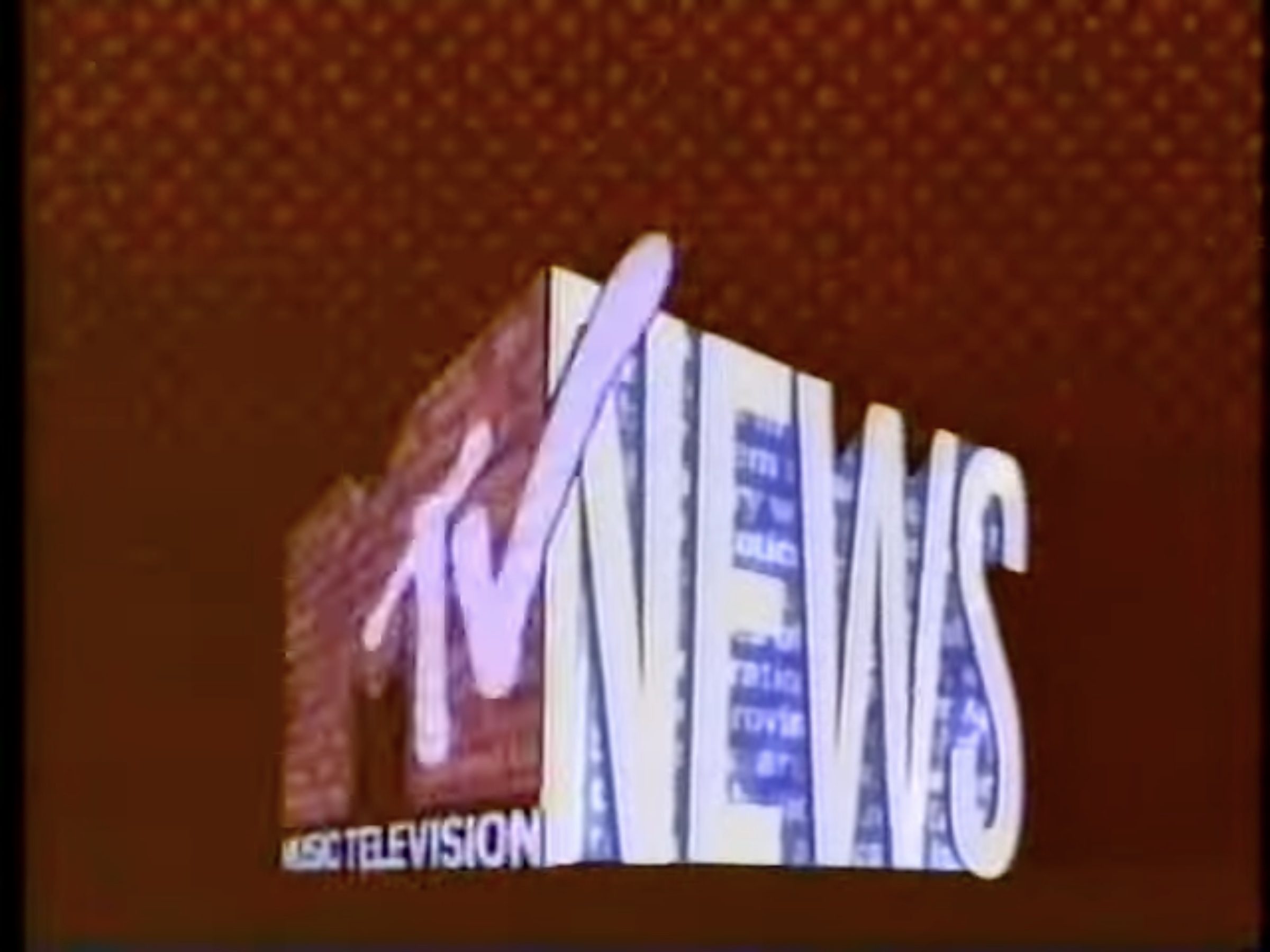
Though a smiling Loder denied doing it — MTV kicked in with Nirvana’s tour manager to cover some $30,000 worth of damage — Finnerty has her doubts: “I have a hard time believing Krist would ruin his room and then ruin Kurt’s room, too.”
But that was then.
More recently, MTV News, launched in 1984 at the then three-year-old music video channel, aimed the wrecking ball at itself.
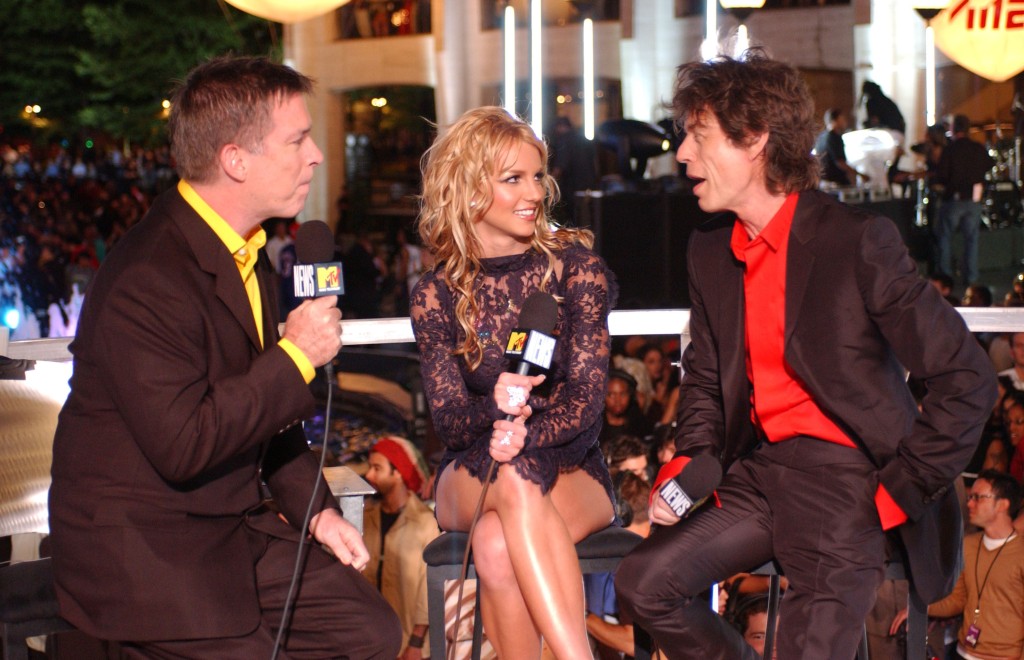
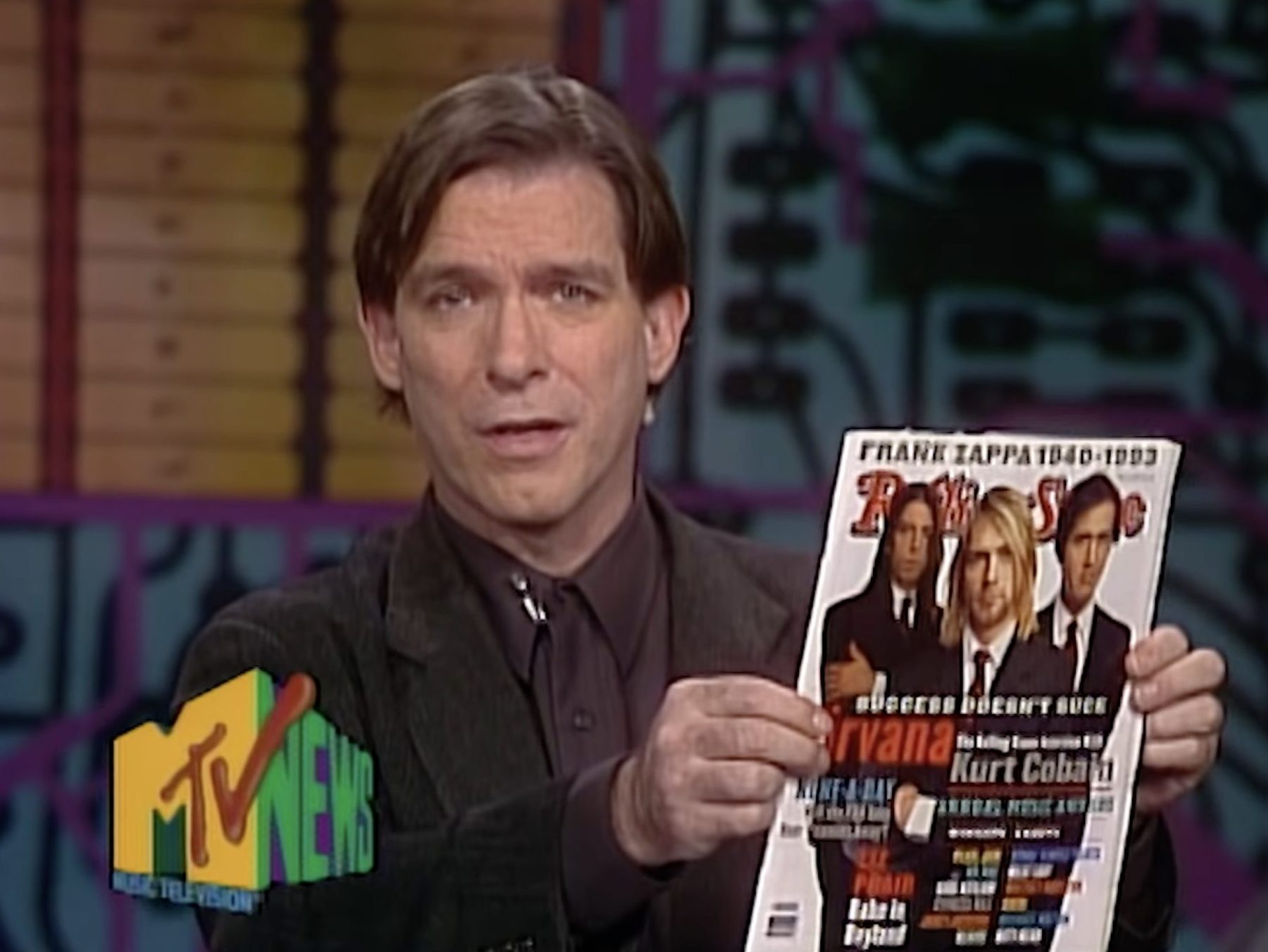
MTV News put out its last blast of pop-music updates this past week as parent company Viacom shut it down.
For an outlet that once reigned as the CNN of rock ‘n’ roll, it died quietly — as an Internet only operation, with a bare bones staff and a sense of irrelevancy.
It did not start out like that, though.
From the early 1980s into the early 2000s, MTV was everything for music obsessed kids.
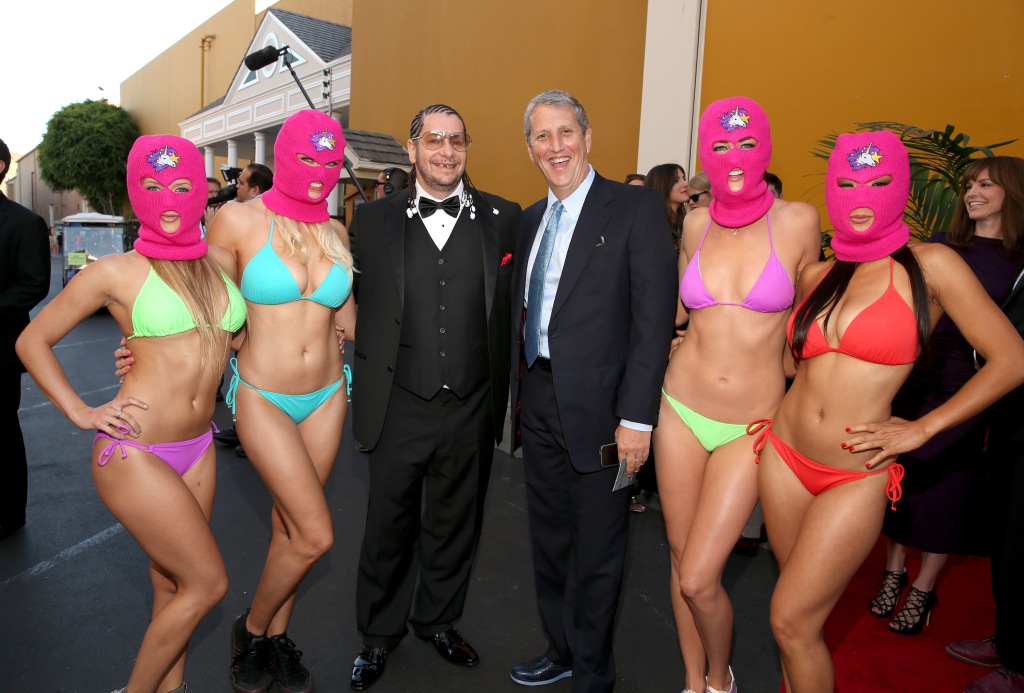
And MTV News kept them abreast of Madonna’s latest provocations, Michael Jackson’s newest dance moves, and Axl Rose’s current insanities.
Not coincidentally, according to Tim Sommer — a reporter with the burgeoning newsroom and author of “I Only Wanna be with You” — those three stars wielded power that blurred the lines between business and journalism.
“Their presence was so big,” he said. “We’d have to kill stories that they wouldn’t like.”
“MTV was not going to run a scandal story about a band unless the band wanted it,” Merle Ginsberg, another one of the news department’s young reporters, told The Post. “We were championing rock ‘n’ roll.”
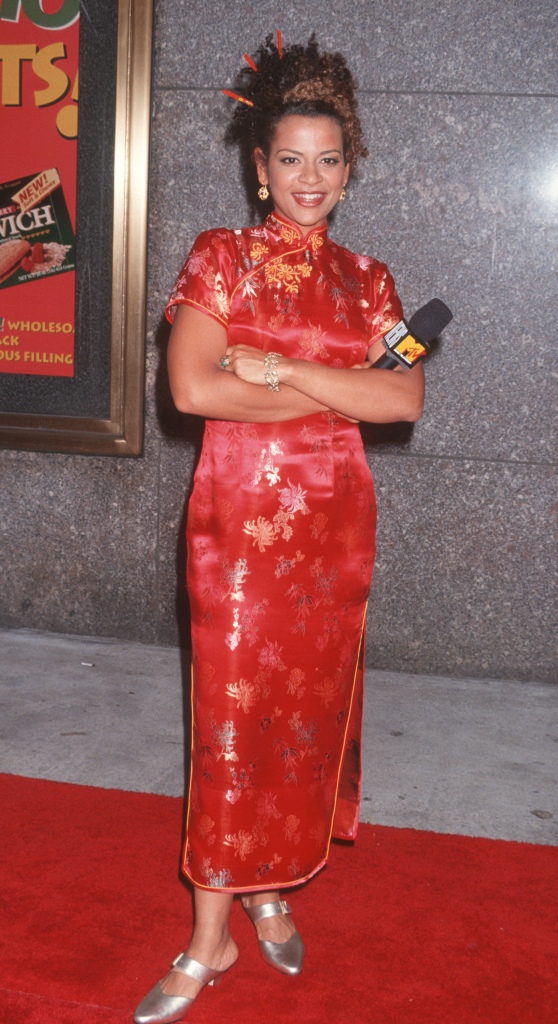
MTV News proved itself capable of mustering Water Cronkite-level seriousness for another Kurt Cobain moment: when the rock star shot himself in 1994. “That was our bombing of Baghdad,” Doug Herzog, MTV’s first news director, told The Post.
“Most media would not go beyond the headlines. We went to round-the-clock coverage. Kurt Loder was at the desk and it was a watershed moment. We got the attention of mainstream media.”
The news staff was populated with music obsessed 20-somethings whose interests went beyond the mainstream.
Pushing boundaries while showing off callow youthfulness, co-anchor Kevin Seal once did a show from behind the desk in his underwear with his penis exposed.
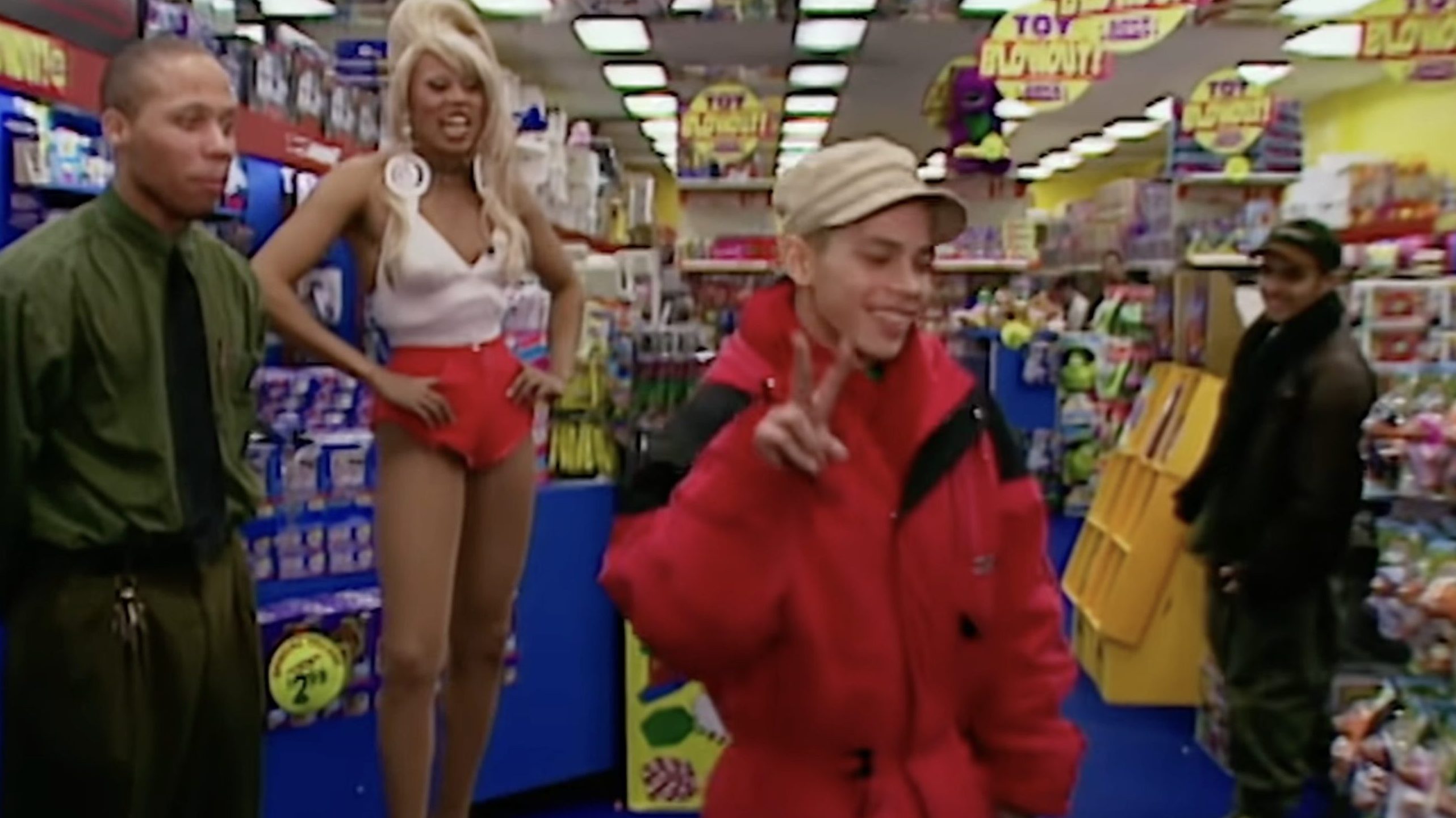
“My very first piece for MTV News had me taking Ru Paul, in full drag, to a New Jersey shopping mall in 1993,” Alison Stewart, now with NPR, told The Post.
“I wanted to take the most fabulous person to the most mundane place. I don’t think that the mall’s [executives] knew what they were getting into.”
Stewart also remembers “waiting eight hours in the New Hampshire cold for Bell Biv DeVoe to come out of their trailer at 2:00 in the morning.”
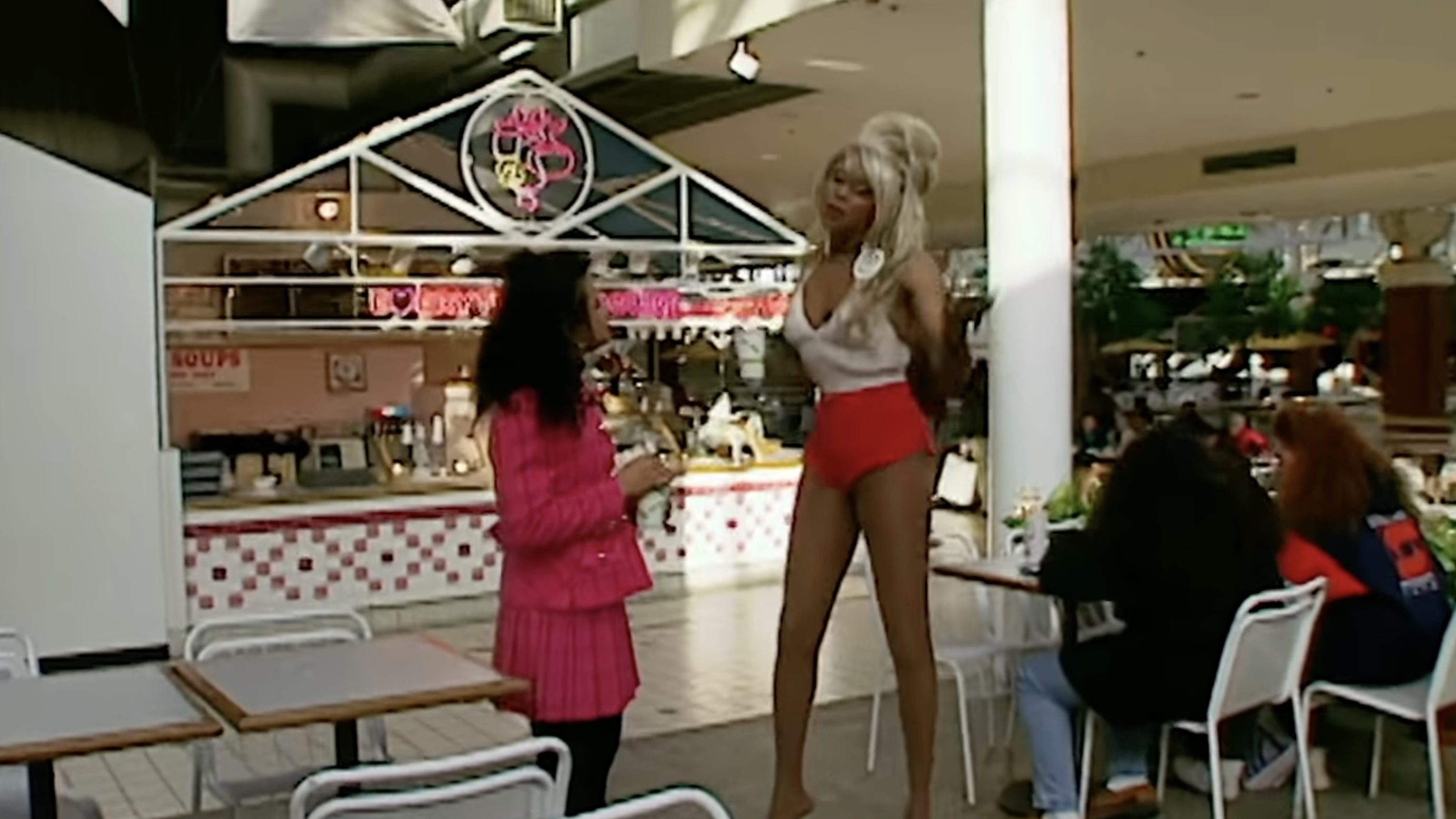
Then there was the time “I was interviewing an unknown band that was about to moon me on camera. I said, ‘That’s not happening,’ and it didn’t.”
MTV anchor Tabitha Soren got blown off by Tom Petty and reprimanded by MTV brass for “pissing everybody off” in her unsuccessful quest to get the story.
Sommer describes MTV News as “the conscience of MTV.”
He remembers the staffers as “music nerds,” grudgingly filing stories on Pete Townshend while slipping in bits about cool bands that became huge (REM) and others that didn’t (the Shoes).
They occupied offices where producer Rick Rubin would come to hang out.
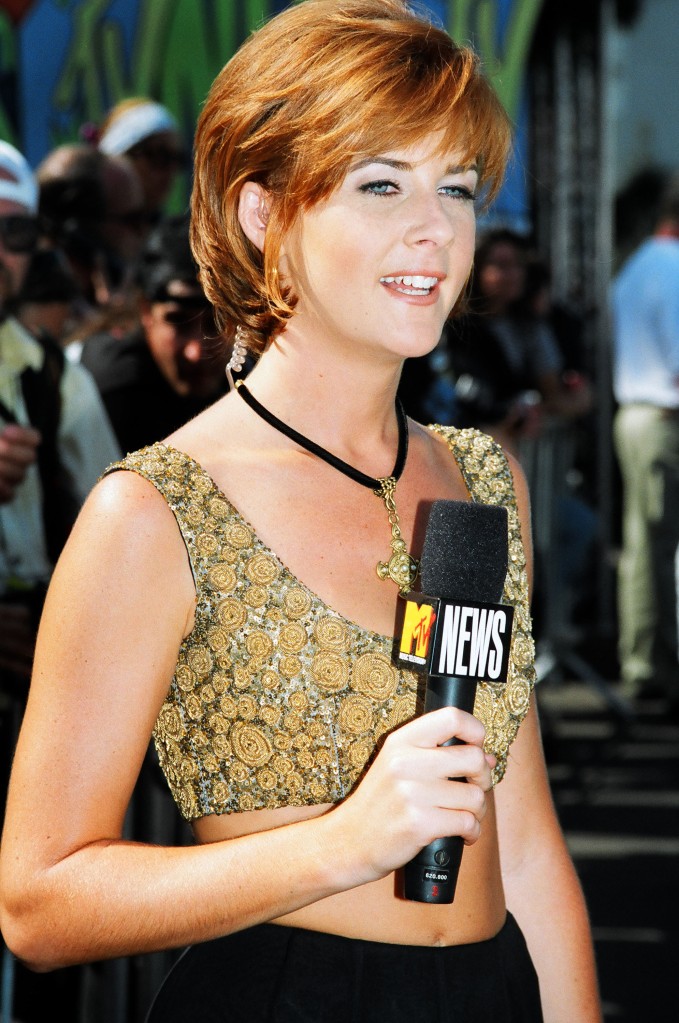
“The network played Journey while Rick told us about a just-signed kid that he was going to call LL Cool J,” recalled Sommer — and the Beastie Boys wreaked havoc.
“They were obnoxious teenagers,” said Herzog. “They came up and stole records. Then they would leave and somebody’s stapler was missing. They lined their pockets with s–t just to f–k with us.”
Sometimes the MTV News staffers messed with the rock stars.
“We watched interviews with rock stars under the influence,” said Herzog, explaining that they aired the least embarrassing bits from train-wreck sit-downs.
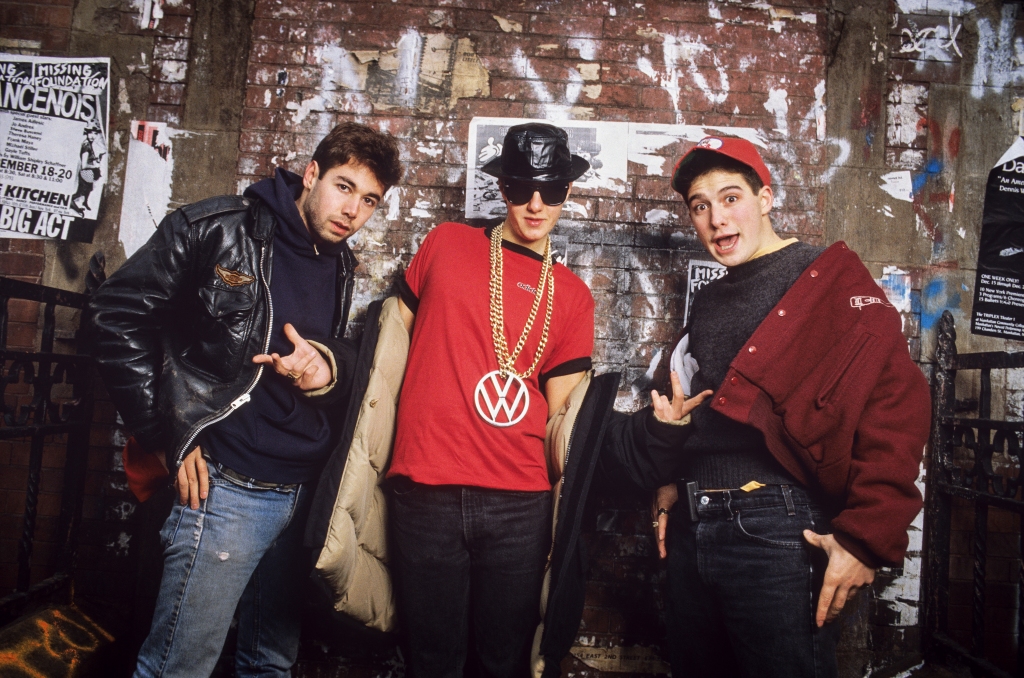
Stevie Nicks was a favorite: “She was under the influence a lot back then.”
Nicks has since stopped taking recreational drugs.
At least one member of the Rolling Stones visited MTV in a drugged-out state. “I got a call from Allen Klein [who managed the Stones],” Herzog recalled. “He asked if we wanted to interview Bobby Womack [a soul singer]. I said that he’s not a guy for us.
“Then Allen asked, ‘What if I bring the Rolling Stones with Bobby?’ We got the Rolling Stones without Mick in a Nickelodeon conference room. Charlie Watts looked like death warmed over. He had a heroin habit and his skin was green.
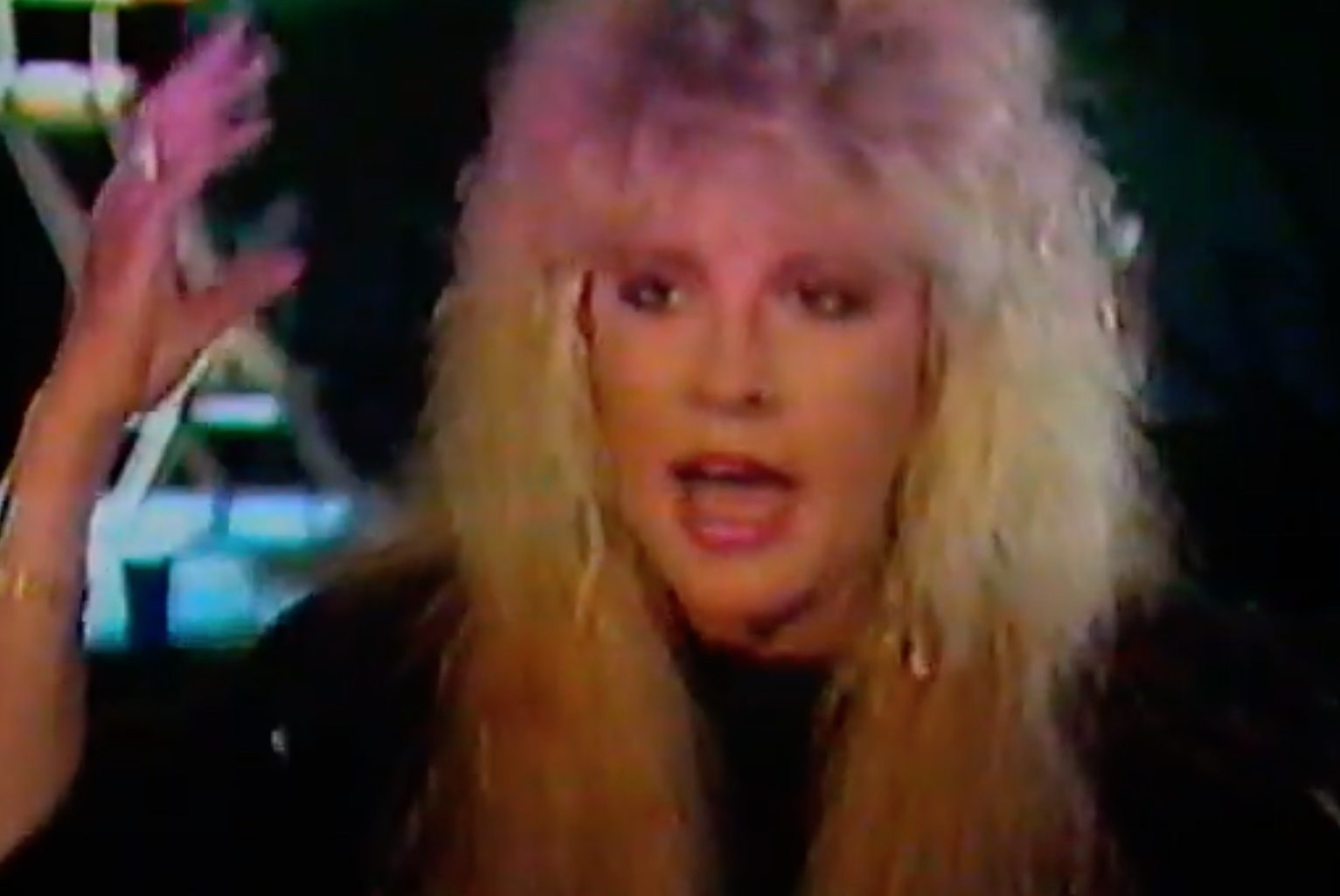
“I didn’t know if he would make it through the interview. Ron Wood, on the other hand, had a long talk with me and asked for Nickelodeon gear for his kids. We loaded him up.”
Sometimes, though, the drugs and rock ‘n’ roll hit too close to home.
Following an interview with the Stone Temple Pilots’ vocalist Scott Weiland — who eventually died of a drug overdose — Stewart told Hollywood Reporter. “I was, like, ‘I don’t know if I want to do this anymore.’”
One of MTV News’ most groundbreaking stories, the recording of Aerosmith and Run DMC collaborating on “Walk this Way” in 1986, was a bit of a fabrication and far from a slam dunk.
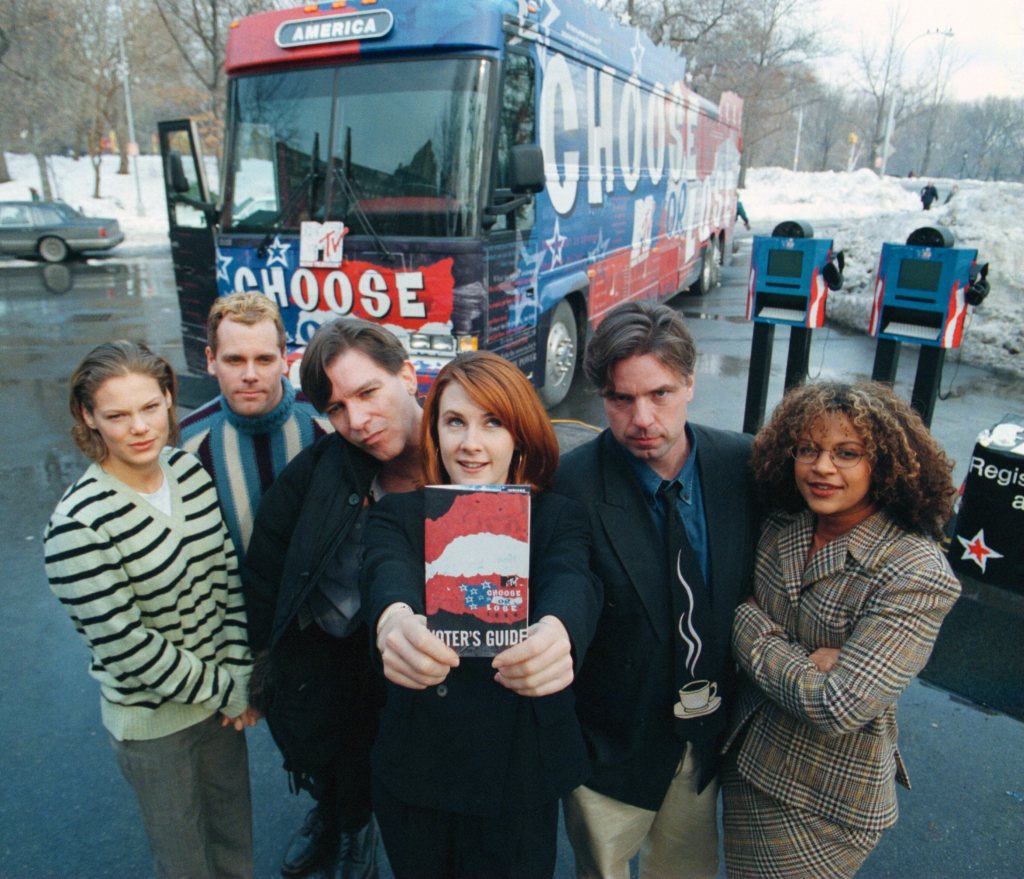
“Aerosmith was dead in the water at the time,” said Herzog. “They had drug problems and were on the skids” — while Run DMC was largely unknown. “But we thought the collaboration was interesting. They staged a recording session for us, we put it on MTV, and the trajectory for Aerosmith and hip-hop were both changed.”
As the footprint of MTV News grew, so did the division’s sphere of influence.
It moved from strictly music to the coverage of movies, fashion, and politics.
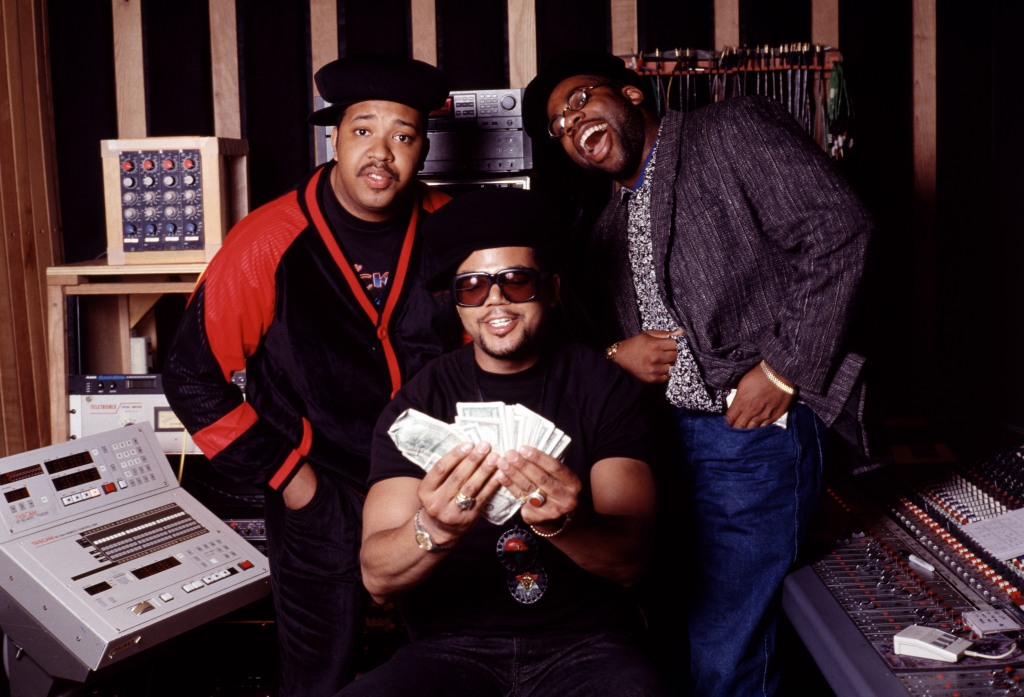
When it came to politics, MTV did it their way, with “Choose or Lose” coverage of elections.
Stewart even brought the rapper Treach to the Republican National Convention.
During an MTV-sponsored town hall in 1994, an audience member asked Bill Clinton if he wore boxers or briefs.
Without flinching, Clinton replied, “Usually briefs” — and the young demographic loved it.
They also loved the unintentional hilarity of Loder interviewing Ross Perot.
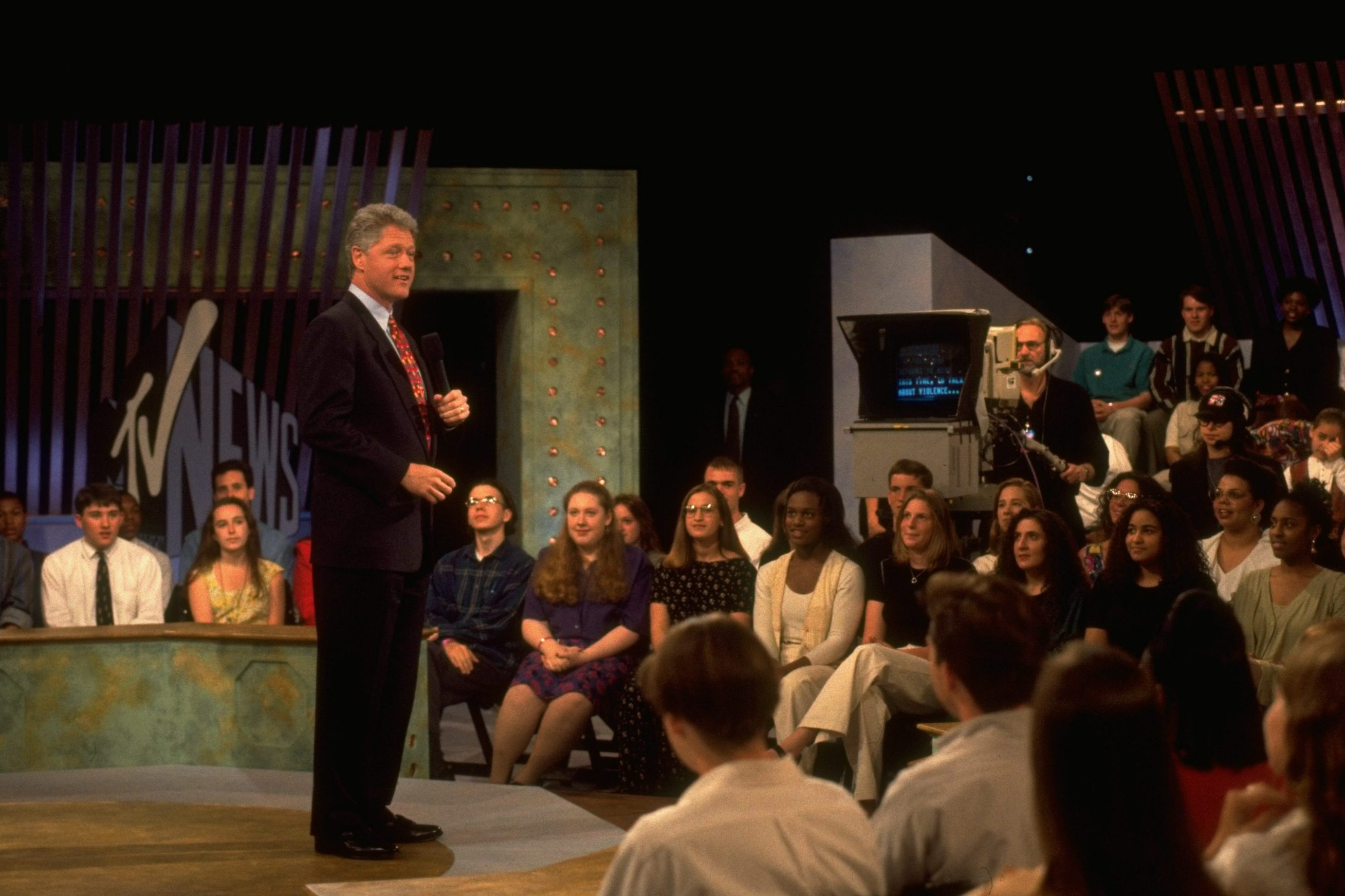
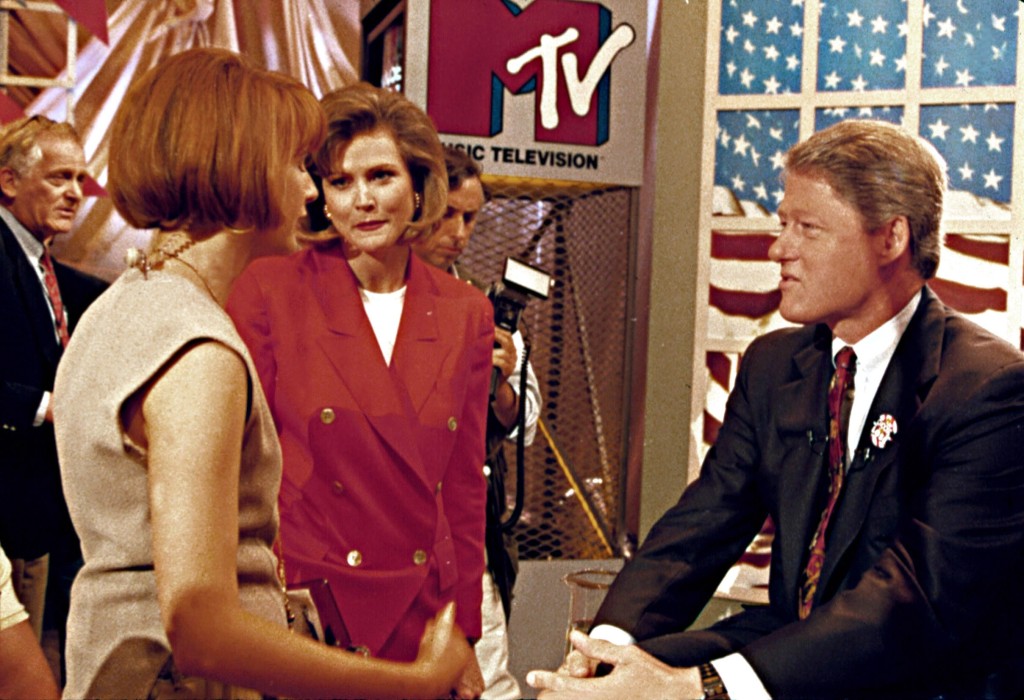
Trying to connect with MTV’s audience, a clueless Perot said, “Now, if you’re out there doing drugs and you’re having sex, you’re no better than a rabbit. You’re a rabbit!”
No doubt, they also dug when the rambunctious Kennedy (now a fixture on Fox Business Network) — standing on a platform next to Rudolph Giuliani — mimed deep-throating her microphone.
Looking back on it all, Herzog — who unsuccessfully tried in 2015 to revive MTV News to its former glory — views the division’s demise with a mix of nostalgia and realism.
“Outside of ‘SNL,’ nothing lasts forever,” he said. “MTV News had its day and a big impact that came with it.”
Read the full article Here


